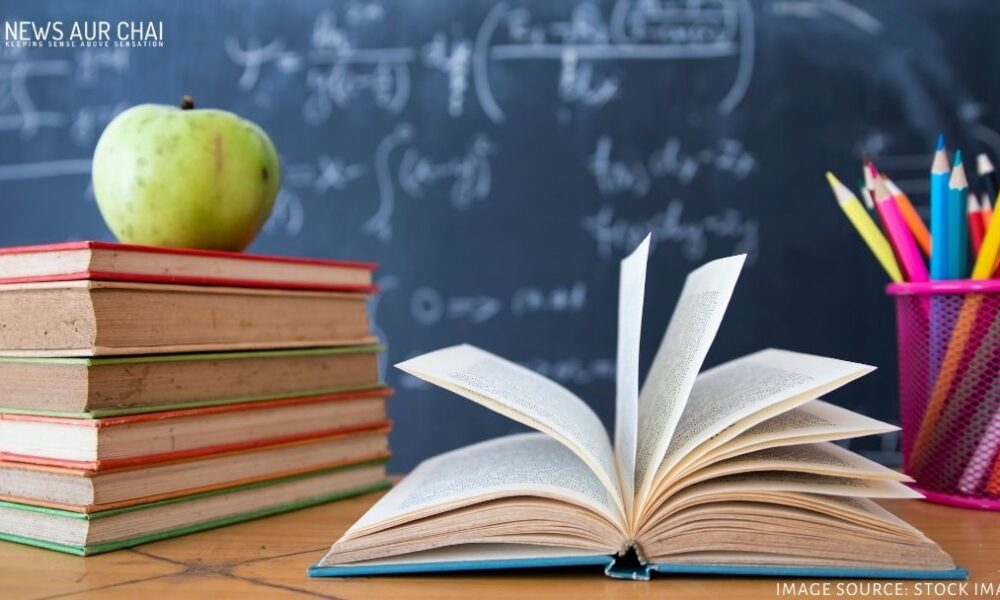School! The first thing that comes to our minds is the noisy classroom, comprising of the students studying, hustling and enjoying in a world of their own, teachers teaching and disciplining the classroom, the whiteboard, colourful charts across the walls and overall, a series of mixed emotions! With the lockdown, this has become a dream that student would love to relive. Although ‘online’ classes are being carried out in the best possible manner, one cannot compromise the feeling of sitting on a bench and creating memories with friends.
As per sources, over 90 per cent of the children around the world have missed on the schooling experience due to the lockdown accompanying the pandemic. The future of recent school graduates looks uncertain with not being able to pursue their higher education. If at all friends are to meet up, they have to cover their faces. All meetings are held via online video applications (with ‘network connectivity’ issues of course!). As of the moment, things look a bit upside down for a student.
Recent conversations with students have brought out the following points of being in a lockdown:-
Brighter Side of not going to school
1) Spending time with family;
2) Can trouble the elder siblings to help out with the homework;
3) Much more time to play;
4) Discovering and pursuing new hobbies.
Dim Side of missing school
1) “I MISS MY CLASSROOM AND FRIENDS!” was what one of the kids yelled;
2) Ringing of the school bell after each period;
3) Bunking classes with friends;
4) The school canteen.
United Kingdom’s (U.K.) Chief Medical Officer (C.M.O.)’s take on the topic
In a recent Statement, Prof. Chris Whitty, the British C.M.O, had mentioned that “the chances of children dying from COVID-19 are incredibly small – but missing lessons ‘damages children in the long run.”
The UK CMOs and DCMOs have summarised the current evidence on schools and COVID-19.https://t.co/VlErkF8iLr
The risk of a child coming to significant long term harm from COVID solely due to school is very low. The risk of harm to many children if they don't go to school is high
— Professor Chris Whitty (@CMO_England) August 23, 2020
Also, he mentioned that “many more [children] were likely to be harmed by not going than harmed by going to school.” Furthermore, “There’s also very clear evidence from the U.K. and from around the rest of the world that children much less commonly get a severe illness and end up having to be hospitalized if they get symptomatic COVID.” The British Prime Minister, Boris Johnson, has said getting children back to school is a matter of national priority.
Now is the time to get kids back to school. pic.twitter.com/yMxw595KUr
— Boris Johnson (@BorisJohnson) August 24, 2020
I have previously spoken about the moral duty to reopen schools to all pupils safely, and I would like to thank the school staff who have spent the summer months making classrooms Covid-secure in preparation for a full return in September. (1/4)
— Boris Johnson (@BorisJohnson) August 24, 2020
The C.M.O. further stated that “Very few, if any, children or teenagers will come to long term harm from COVID-19 due solely to attending school”. Prof. Chris Witty went on to say that it would be ‘foolish to expect a vaccine this year.’
Statement showing the statistics and drawbacks of not attending school (as issued by U.K.’s C.M.Os)
1) Increased inequalities;
2) Reduced opportunities;
3) Worsen physical and mental health issues.
The Statement showed that, “The percentage of symptomatic cases requiring hospitalization is estimated to be 0.1 per cent for children aged 0-9 and 0.3 per cent among those aged 10-19, compared to a hospitalization rate of over 4 per cent in the U.K. for the general population”. Clearly, a very low rate of the virus’ impact is depicted amongst the children and thereby, there is an exceptionally low risk of dying.
Current situation in India
In August 2020, the Indian government had dismissed reports which stated that schools will be open from 01 September 2020. Sources close to the Government mentioned that the final call will be taken only after inspecting the situation and assessing the risk of community spread. In a meeting of the Ministry of Education Parliamentary Standing Committee, a decision was taken to distribute ‘transistors’ to the economically weaker section who cannot afford electrical gadgets for the online classes. The anticipated ‘online exams’ are also in the talks to be held from home in 2020.
Response of Parents
Even though there might be plans to reopen schools by following the necessary precautionary measures, parents are concerned to send their beloved children to schools in a time like this. They are of the opinion that schools should continue with ‘online classes’ so that primarily, the kids are safe from being exposed to the invisible virus and also they can keep a track of their children’s school work. They do understand that their children miss the fun part of school life, but they are more concerned about the well-being of their children. When you look at the situation from a Parents’ eyes, it makes all the more sense too.
With mixed responses from all sides at various points of time, one can hope that the careful and right decisions may be undertaken at the right time to ensure the safety of all the citizens in the long run.
